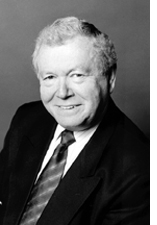By Rabbi Dow Marmur
 JERUSALEM — Shimon Peres has held prominent positions in Israeli politics in general and (especially early in his career) in the defense establishment in particular since the inception of the state, even though the electorate has never liked him. Until the Knesset finally chose him to be Israel’s current president, he could never win an election.
JERUSALEM — Shimon Peres has held prominent positions in Israeli politics in general and (especially early in his career) in the defense establishment in particular since the inception of the state, even though the electorate has never liked him. Until the Knesset finally chose him to be Israel’s current president, he could never win an election.
Had he, for example, been elected president when he was first a candidate, Israel would have been spared the embarrassment of Moshe Katzav, now about to be sentenced for rape and related offences. Katzav got the job only because he wasn’t Peres. Members of the Knesset knew even then about Katzav’s proclivities and that Peres was infinitely more suitable, but they didn’t trust Peres and so turned him down.
When he finally became president, Peres has proven to be Israel’s greatest political asset in these difficult times. There’s no other Israeli public figure that can match his international standing. At 87 he’s more on the ball and has more energy than a person half his age. Now he also commands the respect, perhaps even the affection, of his countrymen. He no longer has to go abroad to receive standing ovations.
For example, this February 7 he made two important and widely reported speeches. One was to honour the outgoing chief of staff Gabi Ashkenazi. The president’s enthusiastic praise of Ashkenazi was no doubt a way of rebuking Ehud Barak, the defense minister, who has done all he could to discredit Ashkenazi (and, mercifully, failed). On that occasion Peres chose to make the observation that he had known all the 18 chiefs of staff who preceded Ashkenazi (!) but that the 19th is the greatest of them all.
On February 7 Peres also addressed the Herzliya Conference, the annual event about matters concerning Israel that brings together leading movers and shakers in this country and many important visitors from abroad.
In his speech there, Peres heaped fulsome praise on President Mubarak of Egypt. Whatever his countrymen may say about him now, Peres insisted that Mubarak has saved countless lives of Egyptians, Palestinians and Israelis by preventing more wars in the region. It’s difficult not to read into it a message to all the critics from abroad (including President Obama) who at least initially turned their backs on Mubarak.
Domestic issues concern the president no less than foreign affairs. Thus on February 9 he’ll hold a press conference at which he’ll present a plan developed with twenty leading CEOs in the country intended to promote absorption into the labour force – particularly in the realm of technology – of Israeli Arabs and members of the ultra-Orthodox communities. Israeli companies are said to be reluctant to employ the former and too many men among the latter prefer to spend time in yeshivot instead of offices. As a result, 56% of Arabs in Israel and 59% of the ultra-Orthodox live in poverty, which is four-to-five times higher than in the rest of the population.
Peres rightly recognizes that the political and moral health of a country depends on how it integrates its minorities. Because of their substantially higher birth rate, both Arabs and the ultra-Orthodox are growing minorities. To disenfranchise them is to risk the disintegration of Israeli society as a whole. Hence his imaginative step which, judging by the response it’s receiving in the country may yield startling results.
Thank God for Shimon Peres. If only there were more like him in Israel!
*
Rabbi Marmur is spiritual leader emeritus of Holy Blossom Temple in Toronto. He now divides his year between Canada and Israel